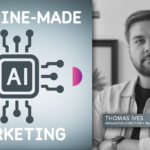By Dimi Albers, Global CEO at DEPT®
The world is increasingly polarized. Companies that once championed Diversity, Equity, and Inclusion (DEI) and sustainability are now scaling back under political, economic, or legal pressures. While it’s easy to take an ideological stance—either for or against corporate responsibility initiatives— the reality is much more nuanced.
Some businesses are reacting to genuine challenges: legal scrutiny, economic downturns, or shifting political landscapes. Others might have adopted extreme policies that now make them vulnerable. I believe in taking a pragmatic yet principled approach. I believe in DEI and sustainability not because it’s expected, but because it makes for a better company.
Our recent B Corp recertification underscored this: these values are not just ‘nice to have’ or adopted in response to external pressures; they’re essential for long-term success and have been core principles from the start.
Sustainability is not a marketing strategy, and DEI is not about quotas. It’s about creating a company where people of different backgrounds can thrive and where you reduce your environmental impact while growing a profitable, innovative business. These commitments are not obstacles to success; they are enablers of it.
Sustainability: A Business Imperative, Not a Checkbox
Sustainability is not a side project—it should be built into your business model. From working with clients on green digital solutions to reducing your carbon footprint, you should see sustainability as an opportunity for innovation rather than a burden.
Companies that thrive in the future anticipate and adapt to change. Regulation on carbon emissions and ethical business practices is only increasing. By embedding sustainability now, businesses can future-proof themselves rather than playing catch-up later.
Diversity Without Tokenism
One of the biggest misconceptions about DEI is that it means prioritizing identity over capability. That’s never been my approach. A McKinsey report confirms that gender-diverse firms outperform their peers by 21% in profitability, while ethnically diverse companies lead by 33%.
I don’t believe in hiring people because of their background—hire great people and work harder to ensure you are reaching diverse talent pools. It’s about broadening the funnel, not lowering the bar.
For example, instead of accepting the first five applicants for a role, push yourself to attract twenty, ensuring you’re reaching talent from underrepresented groups. Don’t force diversity through quotas—achieve it by being intentional in your search and creating an environment where everyone has the opportunity to succeed.
Lessons for Other Agencies: How to Do It Your Way
I’m not here to tell other businesses what to do. Every company has its context, challenges, and pressures. But for those who want to make a meaningful impact, here are a few key takeaways from our journey at DEPT®:
- Define Your Principles – Don’t focus (or not) on DEI or sustainability because it’s a trend. Decide what matters to your business and stick to it.
- Lead with Actions, Not Just Words – Performative marketing is easy to spot. Focus on initiatives that genuinely integrate into your operations.
- Be Transparent – You don’t have to be perfect, but you do have to be honest. Own your progress, acknowledge your challenges, and keep improving.
- Don’t Follow the Pendulum, Build for the Long-Term – Social and environmental responsibility shouldn’t be reactionary. The companies that will succeed are those that stay true to their values even when it’s not convenient.
Progress Over Perfection
No company is perfect, including ours. But that shouldn’t stop us from trying. I believe in creating an organization that contributes positively to society—not because it’s easy, but because it’s the right thing to do.
In a time when many are retreating, choose to stand firm, not because you have to, but because it makes you better. And for any business navigating these choices, my advice is simple: find what you truly believe in and build from there.











